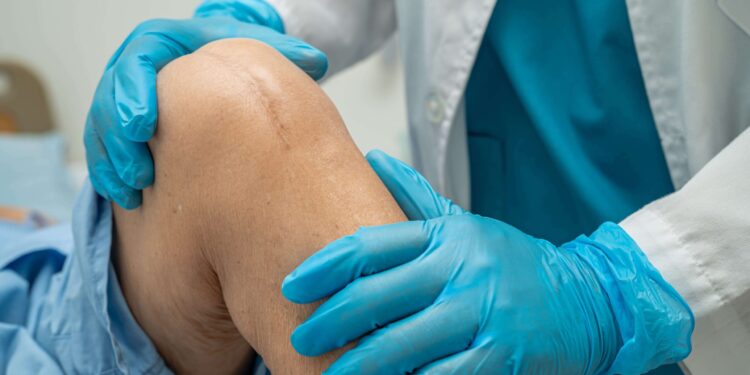Surgical wounds, whether minor or major, require special attention and care to ensure they heal properly and without complications. One crucial aspect of this care is the use of soap during the post-surgical period. While it’s essential to keep surgical wounds clean, choosing the right soap and knowing how to use it properly can make a significant difference in the healing process. In this article, we will explore the role of soap in surgical wound care, the types of soap to use, and best practices for maintaining proper hygiene without jeopardizing healing.
Table of Contents
The Importance of Cleaning Surgical Wounds
After surgery, it is essential to keep the wound site clean to prevent infection, promote healing, and reduce the risk of complications. Bacteria can easily enter an open wound, especially if the area is not cleaned properly, leading to infections, inflammation, and potentially more serious health issues.
Types of Soap to Use for Surgical Wounds
Cleaning the wound regularly helps to remove dirt, debris, and bacteria that could disrupt the healing process. However, it’s equally important not to use harsh chemicals or abrasive cleaning methods, as this could further damage the skin, irritate the wound, or delay recovery. This is where the right choice of soap comes into play.
Not all soaps are suitable for cleaning surgical wounds. It’s crucial to choose a mild, non-irritating soap that won’t interfere with the healing process. Here are the main types of soap that are commonly recommended for cleaning surgical wounds:
1. Antiseptic Soaps
Antiseptic soaps are specially formulated with ingredients that help kill bacteria and reduce the risk of infection. These soaps can be helpful in the initial stages of wound healing, particularly if there is a higher risk of infection. Antiseptic soaps usually contain ingredients like chlorhexidine or iodine, which work to disinfect the area.
While antiseptic soaps can be effective, it’s important to follow your healthcare provider’s instructions on how often to use them. Overuse of antiseptic soaps can lead to skin irritation or disrupt the natural healing process.
2. Mild, Fragrance-Free Soaps
For general daily cleaning of surgical wounds, mild, fragrance-free soaps are typically the best option. These soaps are less likely to cause irritation, and they gently cleanse the skin without stripping it of its natural oils. Many healthcare providers recommend using these types of soaps after the first few days of surgery when the wound has started to heal.
Fragrance-free soaps are ideal for those with sensitive skin or those who are concerned about irritation. The absence of artificial fragrances and harsh chemicals ensures that the soap will not disrupt the healing process.
3. Baby Soaps
Baby soaps are another excellent choice for cleaning surgical wounds, especially for individuals with particularly sensitive skin. These soaps are specifically designed to be gentle and non-irritating. Baby soaps are usually free of dyes and fragrances, making them suitable for individuals recovering from surgery.
While baby soaps are safe and gentle, it’s important to avoid any soap that contains alcohol or strong detergents, as these can cause dryness and irritation to the healing wound.
4. Glycerin-Based Soaps
Glycerin-based soaps are excellent for keeping the skin hydrated and preventing dryness. These soaps are mild and gentle, providing moisture to the skin while cleansing. They are an ideal choice for individuals with dry skin or those undergoing longer recovery periods. Glycerin is a natural humectant, which means it helps to draw moisture into the skin, making it a great option for maintaining healthy skin around the surgical wound.
How to Clean a Surgical Wound
Proper wound cleaning is crucial for preventing infection and promoting faster healing. Here are step-by-step guidelines on how to clean a surgical wound using soap:
Step 1: Wash Your Hands
Before cleaning the surgical wound, thoroughly wash your hands with soap and water to avoid transferring bacteria to the wound site. Using hand sanitizer with at least 60% alcohol can also help, but handwashing is the best option.
Step 2: Use a Mild Soap and Lukewarm Water
Apply a small amount of the mild, non-irritating soap (such as a fragrance-free soap or baby soap) to a clean washcloth or gauze pad. Gently clean the area around the wound with lukewarm water. Avoid using hot or cold water, as it can irritate the sensitive skin around the wound.
Step 3: Rinse the Wound Thoroughly
Ensure that the soap is fully rinsed off the wound and surrounding skin. Soap residue left behind can lead to irritation and discomfort, so it’s crucial to thoroughly clean the area.
Step 4: Dry the Area Gently
Pat the wound dry with a clean, soft towel or sterile gauze pad. Avoid rubbing the wound or surrounding skin, as this can cause irritation or disrupt the healing process.
Step 5: Apply Dressings and Follow Post-Op Care Instructions
Once the wound is clean and dry, apply any prescribed ointments or medications and dress the wound according to your healthcare provider’s instructions. If your doctor recommends covering the wound with a bandage, ensure that it is applied properly to keep the wound protected from external contaminants.
When to Avoid Soap for Surgical Wounds
While soap can be a vital tool for wound cleaning, there are certain situations where you should avoid using it, particularly during the early stages of healing. If the wound is still fresh, open, or showing signs of infection (such as increased redness, warmth, or discharge), it’s best to follow your healthcare provider’s instructions and refrain from using soap until the wound has closed or started to heal. In these cases, you may be advised to use saline solutions or other wound care products instead of soap.
Proper cleaning of surgical wounds is essential for preventing infections and promoting faster healing. The right soap can help in this process, but it’s crucial to choose a mild, non-irritating soap to avoid harming the healing tissue. Antiseptic soaps, mild fragrance-free soaps, baby soaps, and glycerin-based soaps are all suitable options depending on your needs and skin sensitivity. Always follow your healthcare provider’s instructions on wound care and avoid using harsh or irritating soaps that could delay healing or cause complications. With the proper care and attention, your surgical wound will heal effectively and safely.


 Home
Home









